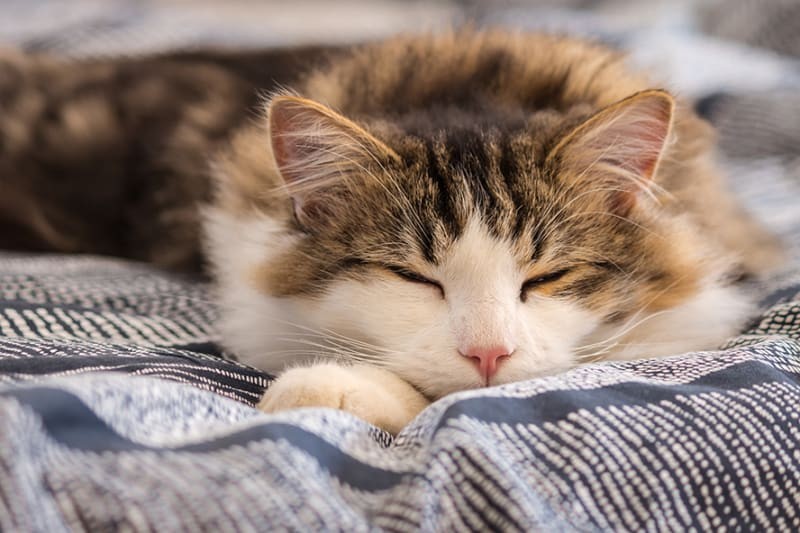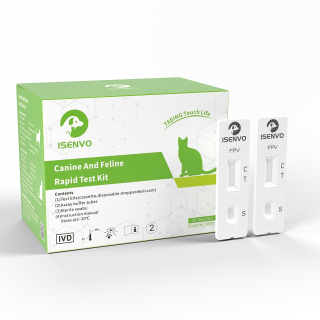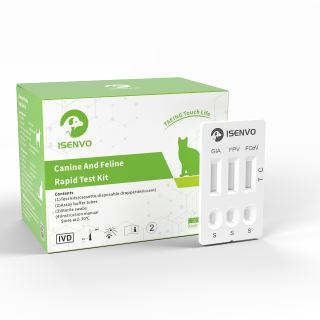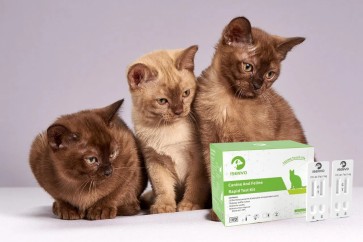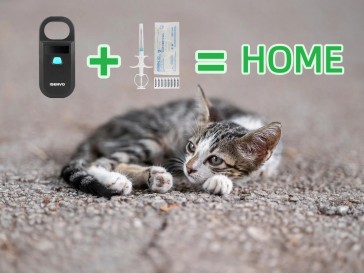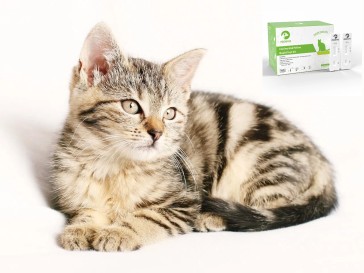Feline panleukopenia (also known as feline distemper or FPV) is a highly contagious and potentially deadly viral disease that affects cats worldwide. Caused by the feline parvovirus, this illness can lead to severe gastrointestinal and immune system damage—especially in kittens and unvaccinated cats.
In this blog post, we’ll take a closer look at what feline panleukopenia is, how it spreads, signs to watch out for, and why early detection is so important. We’ll also introduce a fast and reliable at-home test to help cat owners monitor their pet’s health and catch infections early.
What Is Feline Panleukopenia?
Feline panleukopenia virus (FPV) is a parvovirus that targets rapidly dividing cells in a cat’s body—primarily the intestines, bone marrow, and lymph tissues. It causes severe symptoms like vomiting, diarrhea, and immune suppression. The virus spreads rapidly in environments where cats are in close contact, such as shelters, rescues, or multi-cat households.
Kittens are particularly vulnerable to FPV, and the disease often has a sudden onset. Without prompt intervention, it can be fatal within a matter of days.
How Does Feline Panleukopenia Spread?
FPV is extremely resilient and can survive in the environment for months, making it one of the most challenging feline viruses to control. It spreads through several primary routes:
Fecal-oral contact: Cats ingesting contaminated feces or objects
Direct contact: With an infected cat or its bodily fluids (e.g., saliva, vomit)
Contaminated surfaces: Litter boxes, food bowls, bedding, and toys can all harbor the virus
Humans: People can unknowingly carry the virus on their hands, shoes, or clothing
Since the virus can persist for weeks or even months in the environment, cats that have never been outdoors can still become infected.
Signs and Symptoms of Feline Panleukopenia
Because FPV affects multiple systems in the body, its symptoms may vary. Common signs include:
Sudden loss of appetite
Vomiting or bloody diarrhea
High fever
Extreme lethargy or depression
Dehydration
Weight loss
Neurological symptoms (in severe cases)
The disease can progress rapidly, particularly in young kittens, so early intervention is crucial. If you notice any of these signs, it's important to seek help from your veterinarian immediately.
Why Early Detection Is Critical
Early detection of feline panleukopenia can greatly improve your cat’s chances of survival. The virus acts quickly, and the sooner you can diagnose and begin treatment, the better the outcome. Here’s why early detection matters:
Supports faster treatment: Enables your vet to start treatment right away, increasing your cat’s chances of recovery.
Prevents complications: Quick intervention can prevent serious complications, including dehydration, septic shock, and neurological damage.
Limits the spread: Early detection allows you to isolate infected cats and prevent transmission to others.
Reduces long-term damage: Catching the disease early can prevent lasting immune system damage and other health issues.
Since symptoms alone may not be enough to confirm the disease, reliable testing is essential for accurate diagnosis.
Test at Home with the TAEING 10x FPV Rapid Test Kit
The TAEING Feline Panleukopenia Virus (FPV) Rapid Test Kit offers a fast, easy, and accurate way to test your cat for FPV right at home.
Product Highlights:
Tested Parameter: Detects feline parvovirus/panleukopenia antigens
Sample Type: Uses feces – no blood required
Testing Technology: Lateral flow chromatographic immunoassay
Result Time: 5–10 minutes
Package: Includes 10 individual tests, ideal for multi-cat households, shelters, or ongoing monitoring
This test is designed for both home use and veterinary settings, giving you the option to monitor your cat’s health without needing to visit the clinic. It is especially useful if your cat shows symptoms or if you are introducing a new cat into your home.
What to Do If Your Cat Tests Positive for FPV
If your cat tests positive for FPV, it's important to:
Contact your veterinarian immediately for confirmation and treatment recommendations.
Isolate your infected cat from others to prevent the virus from spreading.
Disinfect your home regularly to eliminate potential sources of contamination (litter boxes, food bowls, bedding, etc.).
Follow your vet’s instructions carefully, which may include hydration therapy, antibiotics to prevent secondary infections, and supportive care.
While there is no specific cure for FPV, early supportive treatment can significantly improve your cat’s chances of survival and recovery.
Final Thoughts
Feline panleukopenia is one of the most dangerous but preventable diseases in cats. Vaccination is the best defense, but even vaccinated households can benefit from being prepared and knowing how to spot the early signs.
The TAEING FPV Rapid Test Kit provides cat owners with an easy and reliable home testing solution, helping to detect infections early and act before the disease can take a serious toll.
Early detection can save lives—for your cat and for the other cats in your home or shelter.

